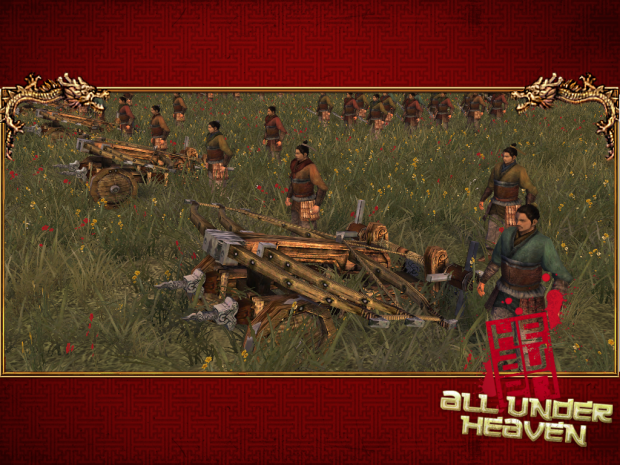All Under Heaven takes the game and transforms it into a Medieval Asian setting, in a period on the eve of the Mongol invasions of Asia, where the entire continent is about to be thrown into a period of warfare which will shape its history and determine the autonomy of many sovereign nations. In All Under Heaven, you may choose to control one of 15 nations from the start date of 1180 A.D. to the end date of 1280 A.D. Hundreds of new units, buildings, events, traits, ancillaries, and other features will bring the mystique and splendor of the Far East into your home.
The "Sangong Chuangzi Nu" or "Triple-bow Little Bed" arcuballista was the pinnacle of Chinese multiple bow evolution. Fitted with crosshaired "gun" sights and firing bolts metres long, these giant crossbows can devast nomad cavalry, helping defend the northern frontier against the increasingly powerful enemy. Special regiments of SanGong Chuangzi Nu teams called "Chuangzi Nu Shou" or literally "Little Bed Crossbow Hands", were formed in A.D. 1016.
The siege crossbow trigger was a direct derivative of the handheld crossbow trigger mechanism, scaled upwards in proportion to the draw weight of the bow. By ingenously mounting multiple crossbow arms on together onto a single frame allows these weapons a higher rate of fire, achieved by alternating the firing and loading of the arcuballistas or by doubling the number of bolts fired through having them armed and fired at the same time. The normal operating range of a multi-bow siege crossbow is over 500 yards. Up to a certain distance, the bolts were armour piercing; these weapons were much feared because of their penetrating power.






